David Muhammad: The Truthdig Interview
The prominent black activist and mentor for incarcerated youth in Oakland, Calif. argues that it's time to hold hip-hop artists accountable for the messages behind their music.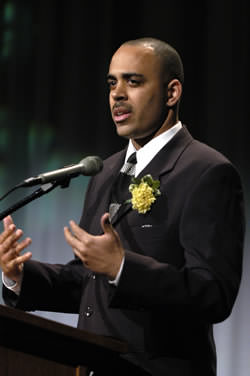
On March 6, 2006, just one day after the hip-hop group Three 6 Mafia took home an Academy Award for its song “It’s Hard Out There for a Pimp,” David Muhammad, a respected black activist and youth mentor in Oakland, Calif., published a short Op-Ed piece on an multi-ethnic wire service in which he blamed some of rap’s biggest stars for promoting what he called a “culture of death” among young Americans.
In the essay, Muhammad called out the usual suspects: scantily clad women in rap videos; songs that glorify the gangster lifestyle; the thuggish personas of the rappers themselves. But he took the standard critique much further, suggesting that corporate hip-hop culture is helping kill black teenagers. He reserved special ire for the multibillion-dollar hip-hop industry. “The culture,” he wrote, “has denigrated into an embarrassing bastion of filth — promoting violence, drugs, irresponsible sex, excessive materialism, and delinquent behavior.”
Bastion of filth? These are strong words, and they sound like what one would hear from a hate-sputtering evangelical on late-night TV, not a progressive Bay Area youth mentor like Muhammad. On the other hand, as of this writing, there have been 35 homicides in the city of Oakland in 2006, more than twice the number by the same time last year. And, increasingly, the violence does not even seem based on the turf vendettas or drug market disputes to which the beleaguered city has grown accustomed in the 20 years following a devastating crack epidemic. Rather, the violence seems random and senseless, a nightmarish vision out of “A Clockwork Orange”– rampaging groups of kids shattering a block’s worth of automobile windows for the fun of it, shootings of near-strangers erupting over intoxicated arguments, fights and gunshots erupting at late-night parties.
Right now, the link between violence and music in Oakland and the surrounding Bay Area seems particularly manifest. Rappers native to that locale, notably B-Legit, the recently deceased Mac Dre, and current national chart topper E-40, are considered some of “realest” rappers in the country — which, according to the dubious ethics of hip-hop culture, means that most of their glorifications of pimping, illegal drug dealing, gang rivalries and street shootings reflect direct criminal experience. The authenticity of Bay Area rappers has never been questioned, but American hip-hop culture’s romanticization of that authenticity deserves a closer look, especially now as Bay Area rap moves to the top of the national charts.
Of course, the crimes and other problems plaguing Oakland are far from an isolated crisis. In nearly every urban center in the country, violent crimes are on the rise, as are unemployment and incarceration rates among black men and new cases of AIDS among black women. Add increasingly violent and sexually explicit lyrics in a musical genre that is now thoroughly mainstream, and the term “culture of death” seems more like an accurate description than an alarmist code word.
Furthermore, I know the man who wrote those words personally, and he is not a man given to histrionics. Almost every Tuesday night for the past nine years, David and I have co-led writing workshops in the Oakland County Juvenile Hall, through a region-wide program called The Beat Within. I come armed with poems, notebooks and a few generations’ worth of Jewish liberal East Coast angst. I beg, cajole, do everything but stand on my head to win over the boys and interest them in the written word — sometimes successfully, sometimes not.
With Muhammad, however, it’s a different story; all he has to do is show up.
Handsome, well-spoken, straight-backed and remarkably even tempered, Muhammad commands immediate respect from the counselors, the staff and even the most rebellious youth — not only because he himself was raised on and by the Oakland streets but also because of his calm demeanor. I have never seen him lose his cool, even though more than once he was late for workshops because he’d been attending the funeral of one of the young men he had mentored or comforting one of their grieving grandmothers.
He is also rather private: Many of the details of his own life story–one which included being a detainee in the facility where he now leads discussions every Tuesday–were news to me. I did not know until he was filling me in on his background after we wrapped up the interview, for example, that he was raised by a single mother in Oakland; that he had one older brother who was a crack addict, another who was a crack dealer, and that he himself began selling drugs when he was barely into his teens. Nor did I know that after several stints in juvie, and six months homeless, he was taken in by the grandmother of a close friend, or that what finally turned him around was the intervention of a demanding football coach, a local youth group, and mostly, the role model he found in the teacher of his black studies class.
In other words, Muhammad is not just a conservative crank who lives in fear of dirty words. When he calls out negative influences in his community, he’s speaking from a combined personal and professional authority very few of us can match.
I asked him to speak with Truthdig about what led him to turn against the music he loves — more than once I’ve heard the bass booming out of his van as he peeled out of the Juvenile Hall parking lot — and he readily agreed, scheduling me between appointments. In his typical overextended style, he called me from the road, between a meeting with a judge, whom he was encouraging to focus more on diversion than on incarceration, and a speaking engagement with a group of inmates in a prison in Vacaville, Calif. In his van there were three young men, clients of his mentoring program, whom he was shuttling from work to home.
Occasionally Muhammad would stop to ask their help when trying to remember a specific lyric — as he explained why, after 33 years, he decided to take a stand denouncing the very music that he grew up on.
Sheerly Avni : What do you mean when you say “culture of death”?
David Muhammad: Wait, let me just start by saying this: As I’ve talked about my article, both on the radio and through e-mails, I have had to continually remind people that my perspective is not just hearing it and responding to what I hear, but seeing the influence of the music on the young people I work with.
I can see that they are literally part of a culture of death – there is drug abuse, alcohol consumption, delinquent behavior, an addiction to money, violence, reckless behavior. These youth come into my office after time spent in Juvenile Hall or at the California Youth Authority, and they talk about “Thizzing” -taking Ecstasy, usually in combination with other drugs, like “purp” (weed) and taking ‘bo’ (Robitussin with codeine). They talk about whip riding, which means driving while not actually sitting in the car. And, of course, they talk about going dumb, going stupid, which usually means exactly that.
Next page: “And I know when I was going to do acts of violence, it would be like a rallying cry, or a soundtrack for my life. We would get it in the car, put on the hard music, put on some NWA, or maybe Ice-T, and go do some violence. We’d be on our way to go shoot somebody, go jump somebody, go get money from someone that owed us…and the music was how we pumped ourselves up.”These are all words and images straight out of the lyrics of E-40, the Bay Area’s most popular rapper – his album is now number one on the national hip-hop charts. The local homicide rate in Oakland more than doubled in the past year, just as the Bay Area “hyphy” movement, with its lyrics about thizzing and going dumb and sippin’ ‘bo,’ have also blown up, locally and nationally. Are you suggesting a relation between the two?
I really can’t help but see a correlation.
I’m not going to say the music is exclusively at fault, when I know the community is designed for its own destruction: blight, poverty, high unemployment, a liquor store on every corner, substandard education, drugs readily available and guns easily accessible, but these factors have all been in place for a long time. So what drives the crime spikes are added things, like the music being as bad as it is.
You think the music is part of what influences the kids’ behavior.
The music is certainly part of the culture I’m describing. I’ve talked about drug use and violence and irresponsible sex, but another thing is excessive materialism. You can see it in their clothing, how they dress. A youth will get a job and spend his very first check on gold teeth, and then come in here and ask us if we can get him some money to buy dinner.
And then there’s a rise in Ecstasy use, which started as a white rave thing, and is now growing exponentially in the black community. In Oakland it is on the rise in connection with “Hyphy” and the “Thizz” movement. There are club nights called Thizz, record labels called Thizz, the celebration of “thizzing” is all over Bay Area slang and rap, and now it’s spreading nationally…. Thizzing means, specifically, being on Ecstasy, usually mixed with other drugs, usually taken in large quantities.
Now you can ask, does life imitate art or does art imitate life? Of course inner-city kids were using Ecstasy before it was in all the rap, but after the songs started talking about it, it exploded.
I see the same kids you do, and hear what they say, and I agree that when they say “thizz” or “going dumb,” they mean exactly what you’re talking about. But words change. Can’t “going dumb” come to mean partying? Having a good time?
You know, we had a young man, now a graduate of the program, but he still comes consistently. He’s incredibly focused, incredibly bright … he’s never even really been in trouble. But sure enough he went recently to a party where people weren’t out selling drugs, they weren’t exhibiting gang behavior, but they did start “going dumb.” Someone pulled out a gun, he got shot and ended up in the hospital.
It’s another big thing in the music, where you suggest that shooting people is a reasonable thing to do. That’s not just having a good time, and it speaks volumes to a culture of death, where you have young people 15, 16 years old who’ve gone to 10 funerals. You believe you won’t live past 21.
So why blame the messenger? This music may be speaking to where the kids are actually at.
No! Let’s be clear: The music did not create the situation. But the music has made it worse. It has exacerbated the problems, and it has promoted insane and destructive beliefs and attitudes in the country’s most vulnerable communities.
This is a community that has had a very difficult time defending itself from a series of afflictions: higher AIDS rates and cancer rates; incarceration, poverty, [poor] education performance, and first and foremost the devastating legacy of the crack epidemic. Back to that New York Times front-page story a few weeks ago: More than half of black men in the inner city are dropping out of high school.
Now that is horrific. And it should call for an outright state of emergency, but the national response to that statistic is almost “business as usual.”
Meanwhile, the worst and most irresponsible criminal behavior is being promoted by these rap artists, the ones who actually have the ear of these young people. And I see how much it impacts their behavior, and how they wind up being locked up for it – or worse.
Like that party last week in South Berkeley just across the Oakland border, where a father was throwing a nonalcoholic party for his teenaged daughter and her friends. He kicked out a group of young men for showing up drunk, high, and flashing guns. One of the young men broke back into the house and shot him fatally twice in the chest.
Being high and drunk, thinking what, [his voice rises, for the first time in the conversation] “Because you kicked me outta party, I’ma kill you!” ?
Right, and the young man apparently shoved a gun in the mother’s face and said, “Move, bitch, or I’ll smoke you.”
There’s that line by Ludacris: “Move bitch, get out the way.” It’s pushing a culture of violence and disrespect as a means of living.
When you were young, you listened to hip-hop. Usually the most violent hip-hop you could find. Do you remember the music that you used to listen to, growing up, and how much it influenced you when you were running the streets in the ’80s?
While in it? I remember the connection between the music and my own irresponsible sexual relationships, without question.
And I know when I was going to do acts of violence, it would be like a rallying cry, or a soundtrack for my life. We would get it in the car, put on the hard music, put on some NWA, or maybe Ice-T, and go do some violence. We’d be on our way to go shoot somebody, go jump somebody, go get money from someone that owed us … and the music was how we pumped ourselves up.
Also, complaints about obscenity in the music are hardly new. There was a huge controversy over Ice-T’s song “LTGBF” in the late ’80s, as well as a good deal of concern over the violence promoted by bands like Niggas With Attitude.
Back then in the mid-’80s, the kind of attitudes you saw in Ice-T were the exception. Today, they are the rule. Today, if you turn on any hip-hop radio station, I would probably guess that 80% of what you hear is going to be about drug use, alcohol consumption and irresponsible behavior.
Black sociologist Orlando Patterson argued in Op-Ed page of The New York Times on Mar. 26 that it is time to look to the culture to understand what is happening to the black community. He suggests that white kids aren’t as damaged by these messages, while black kids take them much more to heart, and suffer more as a consequence.
Well, also, the obstacles are systemic, not just cultural. For example, a white teen and a black teen can commit the same crime, and the judge will send the white boy home, because there is a perception that he has support, while the black boy will be sent to jail, because there is a perception that there are not enough community resources to help him.
Is that perception true?
Sometimes, but not always.
Next page: “Part of my anguish around that is that I love Jay-Z. He is conscious, intelligent and very witty, which is part of why I love some of his lyrics. I also appreciate and support what he’s been able to do as a black businessman. But no, I can’t excuse him putting out some music that promotes the culture of death.” So you don’t blame the rappers?
As I wrote, I believe that many of the rappers are themselves victims. If they had an outlet to disseminate a more positive outlook, they would, but it’s still these major corporations that determine what gets promoted and what gets on the radio.
Jay-Z addresses your question in his own lyrics, claiming that he had to dumb down to sell records:
I dumb down for my audience And double my dollars They criticize me for it Yet they all yell “Holla”
And then he goes on to say that he would rather rap consciously, but he can’t make money doing so:
I know what I’m up against We as rappers must decide what’s most impor-tant And I can’t help the poor if i’m one of them So I got rich and gave back To me that’s the win, win
That’s his perspective.
Wait, are you excusing Jay-Z? This is a man who does not need to make any more money.
Part of my anguish around that is that I love Jay-Z. He is conscious, intelligent and very witty, which is part of why I love some of his lyrics. I also appreciate and support what he’s been able to do as a black businessman. But no, I can’t excuse him putting out some music that promotes the culture of death.
What he’s doing is the very definition of selling out! Still I would put most of the blame on the corporations which not only allow this kind of negative hip-hop but actively promote it. Every national music video station is owned by one station: Viacom.
Here’s a perfect example of what I’m talking about. A lyric in Kanye West’s first big hit: “Dope dealers buy Jordan, crackheads buy crack / the white man gets paid offa all of that.”
Now, when this video came out, MTV bleeped the word “white.” Over and over again, they will debase women and glorify thuggishness, but this is what they decide to censor: “the white man gets paid off of all of that.”
So yes, I think corporations like Viacom and Clear Channel are the most to blame for the culture of death.
But the rappers bear a responsibility?
Yes, I am putting some blame on the artists. Particularly rappers like the Jay-Zs and E-40s. E-40 is also intelligent, and he’s been around for a while, I respect him. But in attempts to make money and “promote the movement,” he’s promoting behaviors that are destroying the community.
So you have the Hyphy movement in the Bay Area, and Crunk in the South, these new forms of hip-hop that are much more savage in its presentation, even if the rappers themselves have shown that they can be incredibly positive at times. David Banner, who is responsible for one of the worst songs, is incredibly positive in real life. [Editor’s note: The chorus of multi-platinum artist David Banner’s wildly popular song “Wait” runs: “You make a nigga wanna fuck your ass on the couch / While we’re still in the club, show your pussy love / Work that clit / Cum girl.” Click here for other lyrics mentioned in this piece.]
When this man speaks publicly, he opens in prayer. After Katrina, he was responsible, speaking out against the government, making efforts to work with and help rebuild the community.
But then look at his lyrics. This is not just degradation of women but irresponsible behavior in men.
Orlando Patterson argued in his Op-Ed that it is men who suffer the most–
Seventy percent of the [new cases of] women getting AIDS are black, so you can’t say that they are not being hit. “Culture of death” behavior as promoted for black men is violent and illegal, while the behavior promoted for women is deviant and sexually irresponsible.
Right before we started talking, I received a call from a woman in Contra Costa calling me about a report in CA, a report she’d just received that black children engage in sex earlier than any other ethnicity.
The girls are suffering, but in a different way.
In your article, you wrote that you feared being called a sell-out. Are you concerned that by slamming hip-hop you’re picking up some strange bedfellows?
Most black people are in the Democratic Party, but most blacks tend to be more socially conservative. You do find yourself taking strange bedfellows. I did not agree with how C. Delores Tucker conducted her campaign against hip-hop, nor did she always keep the best company. If you watch her in the Tupac Shakur movie, she’s sitting next to William Bennett, the same William Bennett who said if you abort black babies you can improve the crime rate.
So yes, I worry about this. But I also agree with Bob Herbert, who said in a column a few weeks back that we need a new civil rights movement, one that comes from within the black community. We also need to address this amongst ourselves.
[laughs] And actually on that note, I’m sorry, I have to cut this short, I have these three young men in the car, and they’ve been waiting for me very patiently.
Your support matters…Independent journalism is under threat and overshadowed by heavily funded mainstream media.
You can help level the playing field. Become a member.
Your tax-deductible contribution keeps us digging beneath the headlines to give you thought-provoking, investigative reporting and analysis that unearths what's really happening- without compromise.
Give today to support our courageous, independent journalists.
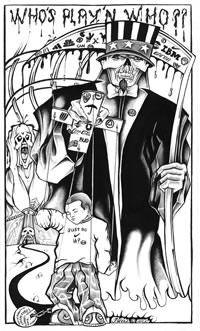
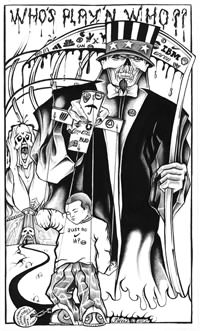
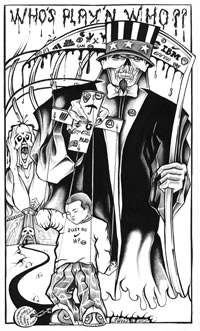

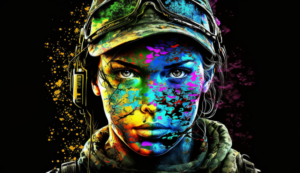
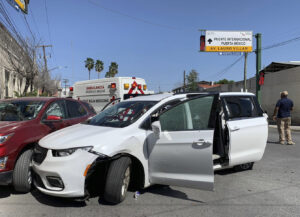

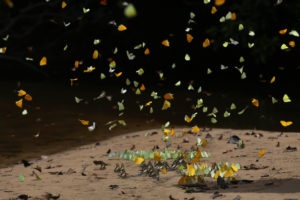
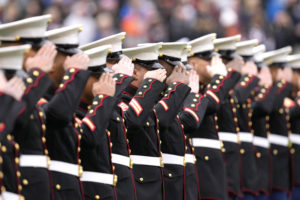
You need to be a supporter to comment.
There are currently no responses to this article.
Be the first to respond.